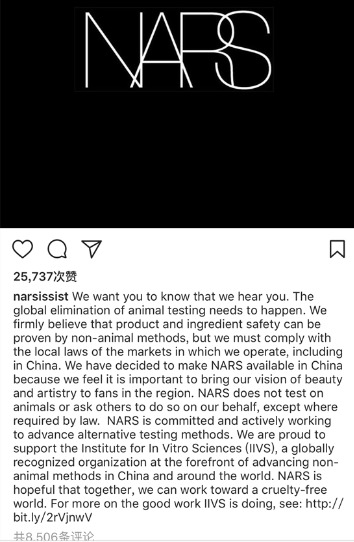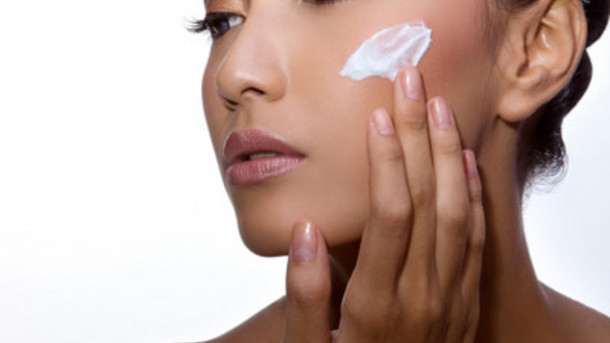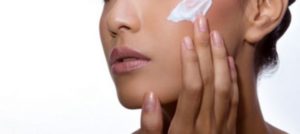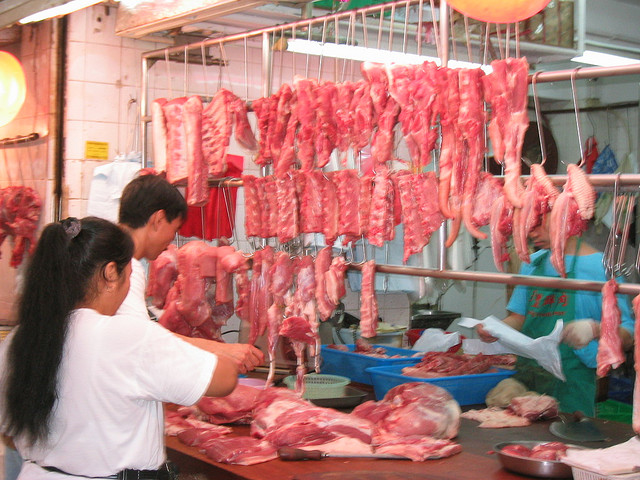What new importers need to know about cosmetics regulations in China?
In the Chinese cosmetic market, overseas brands account for 60% of the total sales of cosmetics, with sales value that amounts to nearly 90%. The cosmetic market in China is certainly desirable to international brands, for multinationals as well as for small businesses. However, importing cosmetics requires complying with a cosmetics regulations in China.
Cosmetics regulations in China: Registration procedures of imported cosmetics
Cosmetic products are divided into two categories: non-special use cosmetics and special use cosmetics. Non-special use cosmetics include hair care, nail care, skin care, perfumes, and makeup. Special use cosmetics include namely products for hair growth, hair dye, hair perm, hair removal, breast shaping, fitness, deodorizing, spot removal, whitening and sun block.
Non-special use cosmetics made abroad require a record-keeping certificate and special use cosmetics require a hygiene license, both issued by CFDA to abide by the cosmetics regulations in China.
7 steps to getting CFDA approval for your cosmetics products in China
1. Appointing a Chinese responsible agent
An overseas company must appoint a Chinese capable agent to apply to the CFDA license in a written Power of Attorney. Indeed, the company can’t register its cosmetic products directly. The Chinese responsible agent can be whether a Chinese subsidiary company, a distributor or a third party (a consulting firm for example). The Chinese capable agent is only responsible for the product registration, not for product safety and their name will not appear on any product label.
A foreign manufacturer can only appoint one Chinese capable agent, but one Chinese responsible agent can be appointed by different overseas manufacturers to apply for CFDA license.
Source: Daxue Consulting. Foreign cosmetics brands are striving to explore Chinese market.
2. Application of User Name and Password
To get access to CFDA’s online registration system and register cosmetic products, the Chinese responsible agent has to apply for a username and password. This procedure requires a notarized appointment letter and the business license of the agent. This step should take approximately one month.
3. Product formula
It is advised to have the product formula reviewed before submitting registrations to CFDA. All the details of the product formula, including INCI name, standard Chinese name, concentration and function of each ingredient should be provided to CFDA for registration. The product will not be approved by CFDA if it contains banned ingredients or if it does not meet the requirements of restrictive conditions in Hygienic Standard for Cosmetics. Technical Safety Standard for Cosmetics will replace Hygienic Standard for Cosmetics from December 1, 2016. If the product contains a new cosmetic ingredient not registered in the Inventory of Existing Cosmetic Ingredients in China, the new element will also need CFDA’s approval.
4. Original product package
The original product package contains product name, full ingredient list, claiming and company information of manufacturer.
Claiming is a susceptible issue of the package: it is forbidden to use absolute and exaggerated words, and the product must not pretend to have therapeutic effect according to Guidelines of Cosmetics Nomenclature. Here are a few examples of prohibited words: top-level, anti-bacterial, stem cells, growth factor. Therefore, it is highly recommended to review the product package before submitting registrations to CFDA.
5. Testing requirements
Even if the cosmetic products have been tested abroad, they must be tested again in CFDA-designated laboratories in China. For all cosmetics, hygiene safety tests are mandatory. 21 laboratories are authorized by CFDA to perform hygiene safety tests that consist of physio-chemical, microbiological and toxicological studies, carried out in animals. For special cosmetic use, human safety tests are also required, and six laboratories are authorized to conduct this type of tests. Additional tests are needed if a cosmetic product contains risk substances.
6. Registration dossier
For the imported non-special use cosmetics, the documents below are required for registration:
- Application form for the cosmetic product to be imported
- Chinese product name and nomenclature
- Product formula
- Product quality and safety control file
- Original product packaging including labeling information and product information sheet
- Testing report and relevant data from inspection organization certified by CFDA
- Safety assessment report of cosmetics containing potential risk substances
- Stamped copies of power of attorney and business license of Chinese responsible agent
- Statement from manufacturer guaranteeing that material used meet the requirements of BSE-free regions
- Certificate of free sale at production country (region) or country (region) of origin
- Brief description and diagram of production process
- Technical requirements for cosmetic products in text
- Other relevant information that can support the application
In addition to the documents of this list, more documents are needed to register special use cosmetics. For hair growth, breast shaping and fitness cosmetics, efficacy ingredients and proof of efficacy are required.
7. CFDA review
CFDA conducts a 2-step review: first a format review or completeness check, then a technical review. The format review should take five working days, and the technical review takes three months, although there is no fixed time to complete the technical review.
When the application is approved, CFDA issues a certificate that will also be requested for customs clearance. The certificate number must be displayed on the Chinese label of the cosmetic products.
The whole procedure should take 6 to 8 month to register imported non-special use cosmetics and 9 to 14 months for special use cosmetics. The registration costs include testing fee and consulting fee, and the CFDA doesn’t charge any administration fee. For imported non-special use cosmetics, if no extra test is required, the registration process should cost between RMB 12,000 and RMB 18,000. For imported special use cosmetics, it should cost between RMB 19,000 and RMB 80,000 (excluding extra test fees).
Latest change of cosmetic import regulation in Shanghai
Noticeably, there is a significant adjustment of cosmetics import regulations in Shanghai recently. Around the middle of January 2017, China Food and Drug Administration and State Quality Supervision Bureau issued a joint announcement saying a pilot scheme of non-special use cosmetics registration management is about to be implemented in Shanghai Pudong New District. More specifically, from 1st March 2017 to 21st December 2018, register records system will take the place of the previous approval management style so long as the foreign cosmetics goods are imported through Pudong New District Port and the person liable in China is registered in this particular region. The cosmetics import volume in Shanghai takes up 30.4% of the total amount of the entire country. This policy is expected to boost the cosmetic industry in Shanghai further.
After applying the simplified registration process, the relevant department can issue administrative permission within 5 days, which greatly shortened the entry time for the foreign brands and enables Chinese consumers to try out the latest international cosmetics products as soon as possible. As a result, the price of international cosmetic brands might decline to the same level of those sold in Hongkong.
This new regulation has come into effect since 12th May 2017. The Japanese cosmetic brand Shiseido (资生堂) was the first one benefited from it. Their facial cleansers entered Chinese market 4-5 months earlier than before, which lowered the storage costs to a large extent.
For cruelty-free products, how to avoid animal testing?
Two solutions exist to avoid animal testing, the usual method used for all toxicological tests.
Choose cross-border E-commerce
Selling imported cosmetic products by cross-border e-commerce, on Tmall, Taobao or Amazon is a desirable way. However, there is still a downside of this approach. For instance, a huge korean cosmetics player called HANSKIN (韩斯清) opted to enter the China market through cross-border E-commerce on Tmall in order to avoid investing heavily on getting certificates and animal testing. However, without a physical presence and flagship stores, this brand failed to attract the attention of the majority of Chinese consumers. Consequently, HANSKIN does not perform well in sales.

According to Sung Min Chun , senior project manager at Daxue Consulting, the physical existence of shop is crucial for foreign cosmetics brands’ reputation building.
Manufacture products in China
Given that domestic non-special use cosmetics are not required to go through animal testing since June 30, 2014, another solution is to fill and pack the products in China. This way, the cosmetics are manufactured in China and considered as domestics non-special use cosmetics. They will not be tested on animals.
Currently, there is no sign of loosening the requirements of animal testing for oversea brands. The new policy stated that the safety criteria is the same as before, the key change lies in the transition from pre-examination mode to management during operation process. Therefore, it is still a real struggle for some oversea cosmetics companies who committed to animal protection but also desire to expand their market to China.

Source: CBO News (化妆品财经在线) Nars stated it has to compromise with the Chinese import law to enlarge market.
For instance, Nars(纳斯), an American cosmetics brand who used to claim to have firm conviction in cruelty-free testing, declared on Instagram about considering enter the Chinese market in September 2017 and hence has to comply with Chinese animal testing requirements. This bold decision incurred numerous backlash, but it seems that no perfect solution can be found for Nars at present.
In conclusion, the 7 steps aforementioned are the key for foreign cosmetics importers. Furthermore, keeping an eye on the new adjustment of regional policy to identify more opportunities is pivotal. If there is any enquiry, please feel free to contact Sung Min Chun, senior project manager at Daxue Consulting through email: sdx2@daxueconsulting.com.
Stay Updated! Follow us on Facebook:






